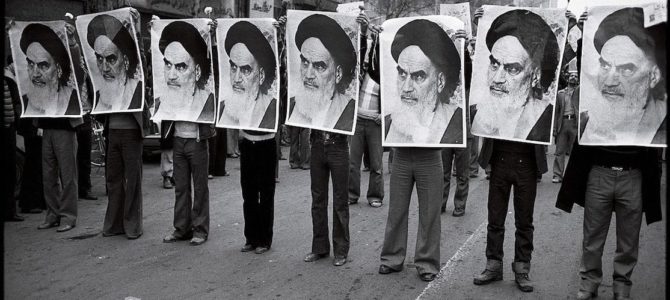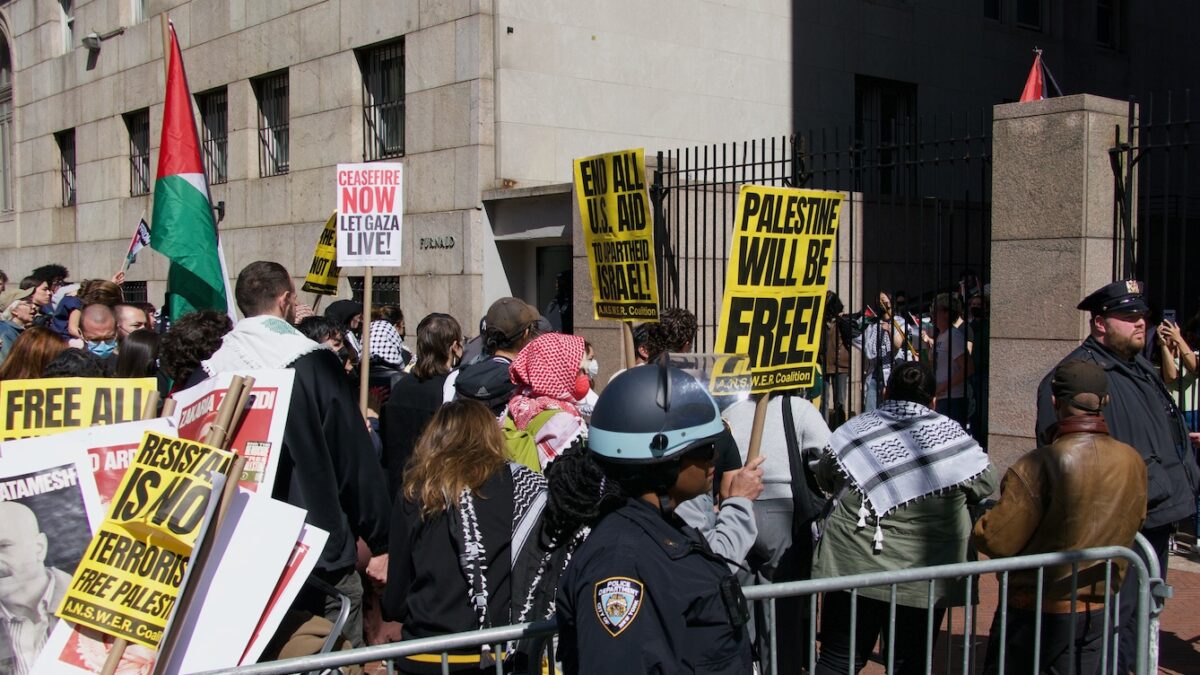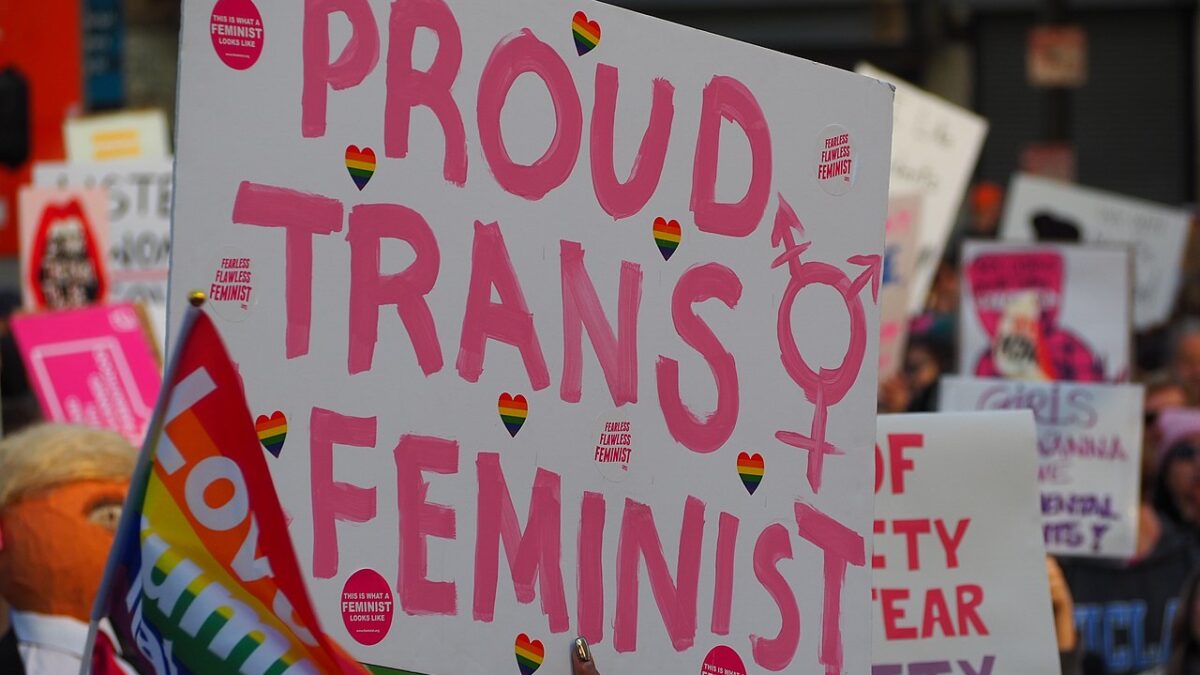
The protests in Iran are now a week old and continue to spread across the country. Hundreds of Iranians have been arrested and more than 20 people have been reported killed. These are the largest protests since the 2009 Green movement, when millions of Iranians demanded a recount after the country’s sham presidential election brought Mahmoud Ahmadinejad to power.
In sharp contrast to President Obama’s muted reaction to those 2009 protests, President Trump tweeted a message of solidarity with Iranians Tuesday morning, calling the regime in Tehran “brutal and corrupt,” and warning that the United States is watching.
In other words, the Trump administration has chosen to talk about the Iranian regime and the plight of the Iranian people in clear moral terms:
The people of Iran are finally acting against the brutal and corrupt Iranian regime. All of the money that President Obama so foolishly gave them went into terrorism and into their “pockets.” The people have little food, big inflation and no human rights. The U.S. is watching!— Donald J. Trump (@realDonaldTrump) January 2, 2018
Good. After nearly a decade of the Obama administration’s moral equivocation on Iran, it’s time to be clear: Iran is a theocracy, ruled by a tyrannical regime led by the supreme leader Ayatollah Ali Khamenei and his fellow clerics, all of whom have innocent blood on their hands. That includes the current president, Hassan Rouhani, whom Obama administration officials like Ben Rhodes cynically styled as a “moderate” in order to sell the 2015 Iran nuclear deal.
The truth is, there are no real moderates among the Iranian ruling class because the regime itself is incapable of reform. Iran isn’t just a theocracy, it’s also a revolutionary regime that seeks to expand Shiite Islamist rule, first to its immediate neighbors in the Middle East and eventually to the entire world. Iranians will only enjoy things like democracy and human rights and an end to government corruption when Khamenei is overthrown and the regime forced from power.
Obama Refused To Speak About Iran With Moral Clarity
But that’s never going to happen with loose, Obama-era talk about “moderates” like Rouhani. As Ray Takeyh noted yesterday in Politico, Rouhani’s reelection campaign last year was “cynical and subversive… Facing a formidable hardline opponent in Ebrahem Raisi, Rouhani spent much of his reelection campaign castigating official corruption and even alluded to one of the regime’s darkest chapters, the mass murder of political prisoners in summer of 1988. He promised rapid economic growth, a human rights charter and an accountable government free of graft.”
Of course, Rouhani didn’t deliver on any of those things because he is a longtime functionary of a regime incapable of combating corruption because it is based on corruption. Obama and Rhodes knew that all along, but their goal wasn’t to bring down Khamenei and the mullahs, it was to strengthen them so America could wash its hands of the Middle East once and for all.
All of which to say, it’s entirely appropriate—in fact, long overdue—for an American president to note, as Trump did, that ordinary Iranians “have little food, big inflation and no human rights”—that they are the victims of their corrupt ruling class. Too often, that’s lost in our rhetoric about Iran. Like all people living under the heel of despots, Iranians want freedom.
That includes economic freedom, but we need to dispense with the misleading notion that the unrest in Iran began as a “protest about economic conditions” then grew into a “general political protest.” The two are one and the same because Iran’s political system is thoroughly corrupt and cannot be moderated or reformed. In the decades since the 1979 Islamic revolution that brought the clerics to power, the government in Tehran and the Islamic Revolutionary Guard have used their power to enrich themselves and their families at the expense of the rest of the country. When I say Iranians want freedom, I don’t mean they all want gay marriage and abortion on demand. They want something more basic: a chance to improve their lives, earn a decent wage, and provide for their families.
That universal human desire is what President Ronald Reagan tapped into during the Cold War, when communism thwarted the desires of hundreds of millions across Asia and Europe. In contrast to his predecessors, Reagan was willing to cast America’s struggle against communism in strictly moral terms. In his famous speech to the National Association of Evangelicals on March 8, 1983, Reagan denounced the Soviet Union as an “evil empire,” and urged his listeners not to be complacent in the face of that evil:
Yes, let us pray for the salvation of all of those who live in that totalitarian darkness—pray they will discover the joy of knowing God. But until they do, let us be aware that while they preach the supremacy of the State, declare its omnipotence over individual man, and predict its eventual domination of all peoples on the earth, they are the focus of evil in the modern world…. So, in your discussions of the nuclear freeze proposals, I urge you to beware the temptation of pride—the temptation of blithely declaring yourselves above it all and label both sides equally at fault, to ignore the facts of history and the aggressive impulses of an evil empire, to simply call the arms race a giant misunderstanding and thereby remove yourself from the struggle between right and wrong and good and evil.
Of Course The Iranian People Are Revolting
It’s easy to see how Reagan’s logic could and should apply to the Iranian case today. Just as the Obama administration did, many on the Left are inclined to ignore the facts of history and label Iran and the West as equally at fault for the sorry state of the Middle East. Obama and Rhodes were so eager to do so that they pushed through the nuclear deal and allowed Tehran access to more than $100 billion in funds that had been frozen by United Nations sanctions. Those resources have gone to support Iranian military adventures across the region, funding terrorists and militias—and clearly not benefiting the people of Iran.
We should therefore not be surprised that Iranians are once again revolting. Samira Mohyeddin, a freelance Iranian journalist in Toronto, told the Canadian magazine MacLean’s in a recent interview, “It blows my mind that people will sit here and say, ‘Where is this coming from?’ How long do you think people will take this? How long do you expect people to take this kind of repression? It’s going to blow.”
The sooner it blows, the better. Most of the instability and violence in the Middle East is, after all, funded and promoted by Iran’s ruling mullahs. The downfall of the Khamenei regime and its replacement by a secular, non-revolutionary regime—even one that’s frail, as Iran’s first-ever democratic government is certain to be—will significantly reduce bloodshed in the region.
It might even herald the beginning of a new era for the oppressed peoples of the Middle East, when they will choose their own leaders and write their own laws. Perhaps, in time, they will even come to know and enjoy what George Washington, quoting the Book of Micah, promised the Hebrew congregation at Newport, Rhode Island: that “every one shall sit in safety under his own vine and fig tree, and there shall be none to make him afraid.”
But that will not happen without a revolution in Iran. Americans, and especially the White House, can hasten that day by speaking about the Iranian regime in clear moral terms.









